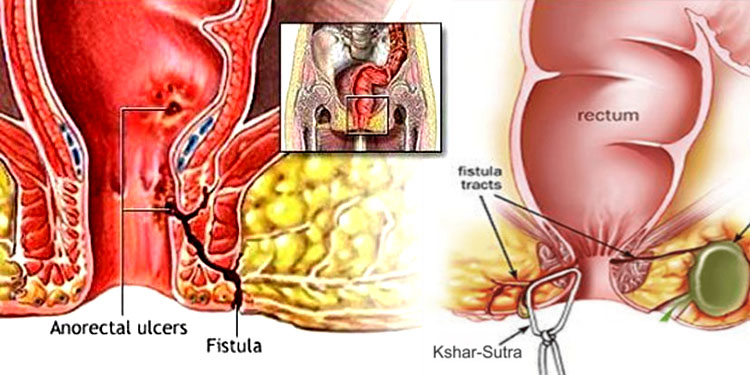Fistula Rectal Surgery Indore
Quick Enquiry

Advanced Fistula Surgery in Indore
Dr. Rakesh Dhupia Jain – Expert Fistula Doctor in Indore for Effective & Minimally Invasive Treatment
If you’re experiencing pain, swelling, or unusual discharge around the anal region, you may be dealing with a condition known as an anal fistula—an abnormal connection between the inside of your rectum or anus and the skin nearby. Left untreated, fistulas can lead to persistent discomfort, infections, and even complications involving the sphincter muscle.
At our advanced clinic in Indore, Dr. Rakesh Dhupia Jain, one of the most trusted names in fistula surgery in Indore, offers minimally invasive, precise, and highly successful treatments, including laser surgery in Indore for complex and recurrent cases.
What is an Anal Fistula?
An anal fistula is a small, tunnel-like tract that forms due to infection or inflammation in the glands located around the anus. This condition often develops after an anal abscess, and without proper care, it can lead to chronic drainage, skin irritation, and painful bowel movements.
Common Symptoms:
- Persistent pain or irritation near the anus
- Swelling, redness, or skin discoloration
- Discharge of pus or blood
- Discomfort while sitting or during bowel movements
- Recurrent abscesses
If you identify any of these symptoms, it is essential to seek treatment for fistula without delay from a qualified fistula doctor in Indore like Dr. Jain.
Causes of Anal Fistula
- Chronic anal gland infections
- Anal abscess complications
- Crohn’s disease or ulcerative colitis
- Tuberculosis or sexually transmitted infections (rarely)
- Radiation or trauma to the anal region
Understanding the underlying cause helps determine the most suitable anal fistula treatment plan.
Treatment Options for Fistula
At Dr. Jain’s clinic, we personalize the treatment based on the fistula’s complexity, location, and patient health. Here are the most commonly used and effective methods:
1. Laser Fistula Surgery in Indore
- Minimally invasive
- Targets fistula tract without damaging sphincter muscles
- Less postoperative pain and bleeding
- Quick recovery and minimal downtime
2. Fistulotomy
- Ideal for simple fistulas
- Tract is cut open and allowed to heal naturally
- High success rate but may not be suitable for fistulas near the sphincter
3. Seton Placement
- Used for complex fistulas
- Involves placing a thin surgical thread to allow drainage and promote healing
4. Advancement Flap Surgery
- Involves covering the internal opening of the fistula with a tissue flap
- Minimizes the risk of incontinence
All procedures are performed under sterile conditions at our modern surgical center in Indore, with utmost focus on patient safety, comfort, and outcomes.
Our Procedure: What to Expect
When you visit our Indore laparoscopy and colorectal center, you’ll receive:
- Personalized Evaluation: A thorough clinical exam and imaging (if required)
- Treatment Plan Discussion: Clear explanation of surgical and non-surgical options
- Surgery Scheduling: Based on your convenience and readiness
- Postoperative Care: Detailed recovery plan, diet guidance, and wound care instructions
Why Choose Dr. Rakesh Dhupia Jain?
- 15+ Years of Surgical Excellence
- Leading Specialist in Colorectal and Laser Fistula Surgery in Indore
- Use of Advanced Laser Techniques for Faster Healing
- Minimal Scarring and Quick Return to Daily Life
- Personalized Care from Diagnosis to Recovery
- Well-equipped Operation Theatres and Friendly Staff
- Transparent Treatment Process and Supportive Environment
With a strong reputation across clinics in Indore, Dr. Jain’s goal is to ensure lasting relief through accurate, compassionate, and technologically advanced care.
FAQs – Voice Search Optimized
Dr. Rakesh Dhupia Jain is widely recognized as the best fistula doctor in Indore for his experience, laser surgery expertise, and excellent patient care.
If you notice pain, swelling, pus discharge, or repeated abscesses near the anus, you should consult a specialist immediately.
Yes, laser surgery is less painful, minimally invasive, and offers faster healing compared to conventional methods.
Most patients recover within 7–10 days after laser fistula surgery, though this may vary depending on complexity.
You may have slight discomfort initially, but it usually subsides within a few days post-surgery.
With the right surgical technique and aftercare, recurrence is rare, especially in laser-assisted cases.
